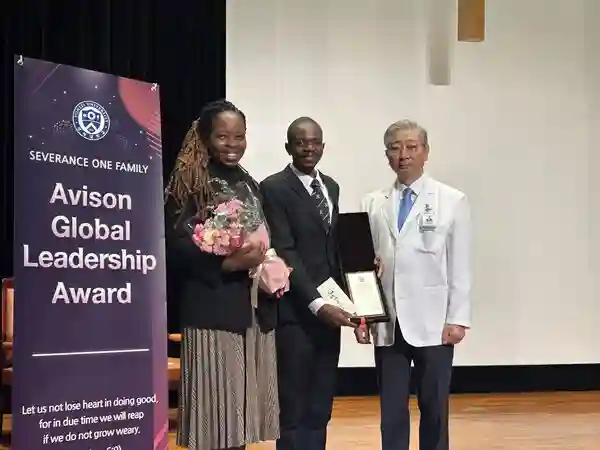Zimbabwean medical doctor, Allan Ngulube has won the Severance Hospital’s Avison Award, an award given to foreign doctors trained by a South Korean private university.
According to the Korea Biomedical Review, every year, Severance Hospital honours the service spirit of its founder, Dr. Oliver R. Avison, by selecting one foreign medical doctor who was trained at Yonsei University Health System (YUHS) and showed a life of service.
Ngulube, a Zimbabwean surgeon, received the 2023 Avison Global Leadership Award. Ngulube trained in endoscopic surgery and endoscopic retrograde cholangiopancreatography (ERCP) at Severance Hospital for three months in 2018.
He then returned to Zimbabwe and began working at Mpilo Central Hospital. However, the hospital did not have any endoscopic equipment.
In 2019, an endoscope was donated from abroad, but it had only a light source and no endoscope tube.
Ngulube didn’t give up. In 2021, he applied for and received $5 000 from Severance Hospital’s Avison global health project grant.
Ngulube purchased a used endoscope, repaired it to connect to the light source donated two years earlier, and began using it.
In 2022, he performed 161 endoscopic procedures and surgeries. Ngulube was recognized for not giving up in the face of difficult circumstances and for faithfully caring for the people in his community. Said Ngulube:
I am delighted and grateful to have received the Avison Global Health Project grant and now to be honoured with the Avison Global Leadership Award.
While this award is for me as an individual, I believe it is a recognition of all the Mpilo Central Hospital staff who serve patients under difficult conditions and circumstances.
Endoscopic procedures are medical procedures that involve using an endoscope, which is a flexible tube with a camera and light attached, to examine and treat different parts of the body.
These procedures allow doctors to visualize internal organs and structures without the need for invasive surgery.
They are commonly used for diagnostic purposes, such as examining the gastrointestinal tract or respiratory system, and for therapeutic interventions, like removing polyps or stones.
More: Pindula News

